Discover the best-top natural moisturizers to get baby-soft skin! Explore top picks tailored for every skin type and find the perfect one for you. You may be surprised at how simple ingredients can leave your skin feeling hydrated, nourished, and rejuvenated. Choosing the right moisturizer is imperative for maintaining healthy skin and preventing issues like dryness or irritation. In this post, you’ll learn about various natural options that fit your lifestyle and skin needs, allowing you to enjoy the benefits of a soft, radiant complexion.
[This post contains Amazon affiliate links. Thank You So Much if you purchase through these links. I may earn a small commission but you don’t pay any extra.]
Table of Contents
Key Takeaways: Top Natural Moisturizers to Achieve Baby-Soft Skin
- Natural Ingredients: Opt for moisturizers that contain natural oils such as coconut oil, almond oil, and jojoba oil, which effectively hydrate and nourish the skin.
- Hydration Benefits: Ingredients like shea butter and aloe vera provide deep hydration, helping to soothe and repair dry or irritated skin.
- Antioxidant Properties: Look for moisturizers infused with antioxidants like vitamin E and green tea extract, which protect the skin from environmental damage.
- Gentle Formulations: Choose products that are free from synthetic chemicals, fragrances, and harsh additives, ensuring they are suitable for sensitive skin.
- Regular Application: Consistent use of natural moisturizers, especially after bathing, promotes long-lasting softness and prevents moisture loss.
Types of Natural Moisturizers
A variety of options are available to you when it comes to achieving that coveted baby-soft skin. Natural moisturizers can be categorized into three main types: oils, butters, and gels. Each type serves as an effective hydrator for your skin, but they offer different benefits that you may find helpful. Here’s a breakdown of these natural moisturizers:
| Type | Benefits |
|---|---|
| Oils | Absorb quickly and mimic skin’s natural oils. |
| Butters | Provide deep hydration and create a barrier. |
| Gels | Refresh your skin and soothe irritation. |
| Serums | Boost skin’s vibrancy and lighten spots. |
| Creams | Combine the benefits of oils and butters for layered hydration. |
Oils
On your quest for baby-soft skin, oils are a fantastic option. They penetrate the skin effectively and help to lock in moisture without leaving a greasy residue. Some popular choices include coconut oil, rich in fatty acids, and jojoba oil, which closely resembles the natural sebum produced by your skin. These oils not only hydrate but also provide nutrient-rich benefits that can improve your skin texture over time.
- Experience Skin Revitalization: Our lightweight, non-greasy body oil, enriched with Undaria Algae, provides nourishing a…
- How to Best Use Our Body Oil: Massage a generous amount into damp or dry skin thoroughly into skin until absorbed. Use i…
- If you have any issues with your purchase, contact the Osea Customer Care team and we’ll make it right! Pro Pump Tips: H…

- HELPS IMPROVES APPEARANCE OF SCARS AND STRETCH MARKS – Dermatologist recommended and clinically proven for scars, stretc…
- PACKED WITH POWERFUL NATURAL OILS – Packed with powerful plant oils and skin loving ingredients, like rosehip oil, laven…
- 100% ALL NATURAL INGREDIENTS – Safe for all skin types, this oil contains no added fragrance, dyes, additives or chemica…

- Experience Natural Hemp Seed Oil: Helps soothe inflammation, and calm atopic dermatitis, the benefits of hemp seed oil a…
- A Fresh and Light Fragrance: Our moisturizer is naturally scented, providing a crisp, clean aroma of flowers and bananas…
- Dramatic Skin Hydration: With shea butter and ginseng to help reduce any redness, your skin will remain hydrated through…

Moreover, oils such as almond and argan oil are high in antioxidants that can protect against environmental factors, making your skin feel softer and more resilient. This blend of hydration and protection is fundamental to achieving that smooth and supple look you strive for.
Butters
While oils are great for quick absorption, butters such as shea butter and cocoa butter excel in providing long-lasting moisture. They have a thicker consistency that forms a protective barrier over your skin, preventing water loss and deeply nourishing even the driest areas. You may find butters particularly beneficial during colder months when your skin is more prone to dryness.
- Love and nourish very dry skin: Our creamy, vegan Coconut Body Butter moisturizes and nourishes very dry skin with 96 hr…
- Rich & moisturizing with a creamy scent: The rich texture and high fat content of shea butter makes this body butter int…
- Quality ingredients with positive impact: Now made with 96% ingredients of natural origin, including Community Fair Trad…
- 100% PURE SHEA MANGO COCOA BUTTER – Try the most popular body butters in one convenient set. All three butters are pure,…
- VEGAN BODY BUTTERS – These butters are vegan and can be used alone or in combination with other oils and botanicals to c…
- BODY MOISTURIZERS – Each butter can be used alone as a deep body moisturizer. It can also be used as a hair butter or co…

Butters often contain vitamins A and E, which aid in skin repair and promote a youthful appearance. By incorporating butters into your skincare routine, you can not only achieve hydration but also support skincare defenses against harsh environmental conditions.
Gels
Now, let’s talk about gels. These moisturizers are typically water-based and are excellent for providing hydration without weighing you down. If you find heavier creams and butters overly thick for your skin type, gels deliver a refreshing feel while infusing your skin with moisture. Look for aloe vera gel or hyaluronic acid formulations, which are known for their deep-penetrating, hydrating properties.
- Leafy Green Moisture – Fast absorbing facial cream formulated with kale, green tea & hyaluronic acid. Works to plump dry…
- Heavy On Hydration, Light as Air – Non-greasy and non-comedogenic skin care for men and women. Hyaluronic acid’s moistur…
- Packed With Superfoods – Our anti-aging cream combines antioxidant-rich powerhouses like green tea + vitamin c, that wor…

- All Day Moisturization: Obagi Hydrate Facial Moisturizer provides all day moisturization with an innovative hydration te…
- For All Skin Types: Gentle, hypoallergenic and non-comedogenic, Obagi Hydrate is suitable for all skin types, including …
- Advanced Hydration: Tara Seed Extract matrix molecules help achieve and retain moisture and enhances your skin’s appeara…

- LIGHTWEIGHT HYDRATION – Kinship Supermello is a quick-absorbing, cooling, and lightweight hydrating gel cream. Made with…
- DESIGNED FOR SENSITIVE SKIN – Crafted with the utmost care for sensitive skin, Supermello boasts a blend of gentle yet p…
- HYALURONIC ACID MOISTURIZER – Supermello is made with clean high-quality ingredients that your skin will thank you for. …

The lightweight texture of gels ensures that your skin retains moisture without clogging pores, making them a suitable choice for all skin types, especially oily and acne-prone skin. This makes gels an attractive alternative for those days when you want hydration without the heaviness.
Gels are often infused with beneficial ingredients such as botanical extracts and necessary oils, which can enhance their soothing properties. This versatility makes gels a wonderful addition to your skincare arsenal.
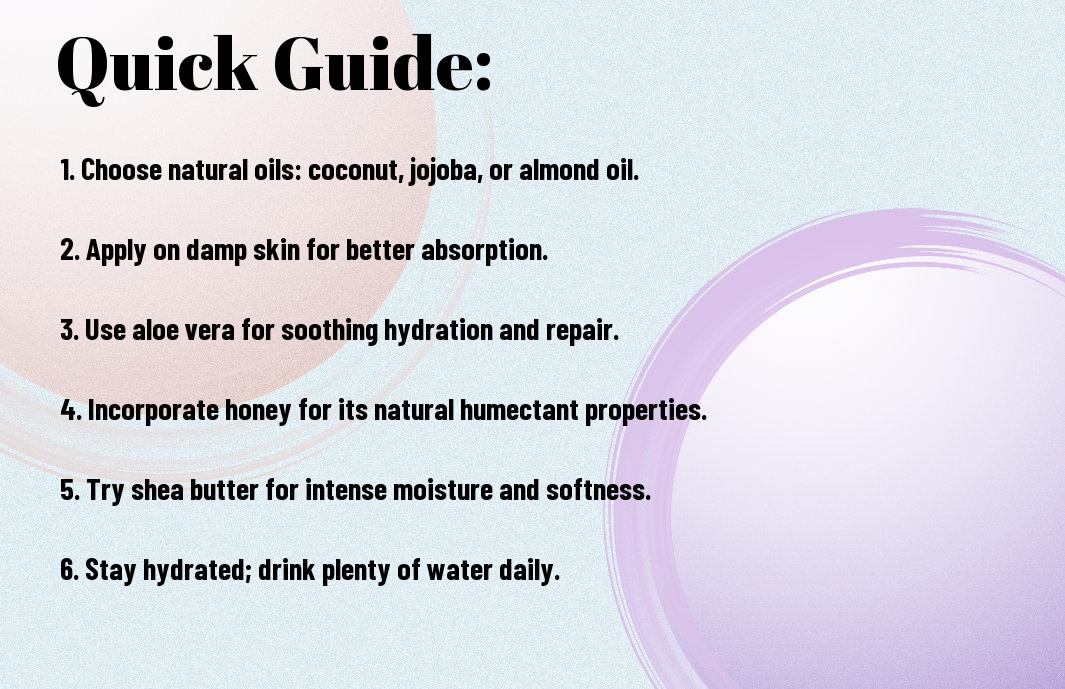
Tips for Choosing the Right Moisturizer
There’s a myriad of options when it comes to selecting a natural moisturizer tailored to your skin’s needs. To make the best choice, start by evaluating your skin type and the specific hydration requirements it has. Here are some key points to consider:
- Know your skin type: oily, dry, combination, or sensitive.
- Look for ingredients that suit your skin’s needs, like aloe vera or coconut oil for hydration.
- Check for any fragrances or additives that may cause irritation.
- Consider your lifestyle: do you spend a lot of time outdoors or in dry conditions?
This understanding will help you select a moisturizer that effectively hydrates and nourishes your skin. For more personalized advice, check out this informative [Routine Help] How to get REALLY soft skin like a baby? thread to understand others’ experiences.
Skin Type Considerations
Considerations about your skin type are necessary when choosing the right natural moisturizer. If you have oily skin, look for lightweight, non-comedogenic moisturizers that won’t clog your pores. For those with dry skin, opt for thicker creams containing nourishing oils or ingredients like hyaluronic acid to lock in moisture. If your skin is sensitive, select products with the fewest ingredients to minimize potential reactions.
Additionally, combination skin requires a strategy that addresses both oily and dry areas. Use different formulations for the corresponding areas or choose a balanced moisturizer that hydrates without being too heavy. Getting to know your skin can significantly enhance your skincare results.
Seasonal Variations
Moisturizer choices should evolve with the changing seasons. During summer, a lighter, gel-based moisturizer can help keep your skin hydrated without feeling heavy. Conversely, winter’s cold and dry air demands more intensive, creamy formulations that create a protective barrier against moisture loss.
Plus, changing environments can affect your skin’s moisture levels. For instance, in humid climates, your skin may require less moisture compared to arid, cold climates. As the seasons shift, be attentive to how your skin feels and adjust your moisturizer accordingly to maintain a healthy glow year-round.
Step-by-Step Application Techniques
All natural moisturizers can significantly enhance your skin’s texture when applied correctly. It’s vital to use effective techniques to ensure your moisturizer penetrates deeply and functions optimally. Applying moisturizers using the right methods can maximize their benefits, allowing you to achieve beautifully soft and supple skin. Below is a structured guide that will help you navigate through the application process effectively.
| Pre-Application Preparation | Methods of Application |
|---|---|
| Wash your hands thoroughly to remove any dirt or impurities. | Apply the moisturizer promptly after showering or cleansing your face to lock in moisture. |
| Gather all tools you might need (e.g., spatula or cotton pads if required). | Use gentle, upward motions for facial application, especially for delicate areas like around the eyes. |
| Choose the right environment, ideally a warm area, to help the product absorb better. | Massage the moisturizer into your skin for better absorption and circulation. |
Pre-Application Preparation
If you’re looking to maximize the benefits of your natural moisturizer, pre-application preparation plays a significant role. Start by ensuring that your skin is clean and free from any products that could hinder absorption. Washing your face or body with a gentle cleanser removes dirt, excess oils, and impurities that may block the moisturizer’s effectiveness. Moreover, consider using warm water as it can help to open up your pores, allowing the natural ingredients in the moisturizer to penetrate more deeply.
If you have any specific skin concerns, such as dryness or irritation, you might want to use a mild exfoliator a day prior to your application. This not only removes dead skin cells but also promotes new cell turnover, enhancing the overall appearance of your skin. By preparing your skin adequately, you are setting the stage for the moisture to be absorbed thoroughly, leading to improved softness and suppleness.
Methods of Application
Methods of application can greatly influence the effectiveness of your natural moisturizers. To start, it’s best to apply your moisturizer directly after cleansing or showering when your skin is still slightly damp. This technique helps to trap moisture within your skin, providing additional hydration. Use gentle, upward strokes when applying the moisturizer to your face and neck. Your fingertips should glide lightly over the skin, promoting circulation and allowing the product to absorb better.
It’s vital to ensure that you aren’t overly aggressive during the application. Overrubbing or pulling the skin can cause irritation and lead to a loss of elasticity over time. Instead, focus on pressing the moisturizer into your skin using your palms or fingers. This method not only ensures that the moisturizer penetrates deeper but also feels soothing and therapeutic, turning a simple skincare routine into a pampering experience. Be consistent with your application routine, and you’ll go a long way in achieving that desired baby-soft skin.
Key Factors Influencing Hydration
Not all moisturizers will work the same for everyone, and several key factors influence how well your skin retains hydration. To achieve that desirable baby-soft skin, it’s vital to consider the following aspects:
- Your skin type — whether it’s dry, oily, or combination
- The weather and climate in your area
- Your daily skincare routine and the products you use
- Dietary habits and overall health
This understanding allows you to tailor your skincare regime and choose the most suitable natural moisturizers for your unique needs.
Environmental Conditions
Even the most effective natural moisturizers may struggle against adverse environmental conditions. Factors such as humidity, temperature, and exposure to harsh elements can impact the skin’s ability to maintain moisture. For example, low humidity levels in winter can lead to skin becoming drier, while hot, humid conditions may create an oily layer that can cause breakouts. Adequate hydration becomes imperative, especially in fluctuating weather patterns.
Moreover, if you live in an area with significant pollution, the air contaminants can wreak havoc on your skin barrier, making it more challenging to keep your skin adequately hydrated. In such cases, incorporating protective and soothing ingredients into your moisturizer is vital to combat the damaging effects of your environment.
Skin Health and Diet
For optimal skin hydration, your overall skin health and diet cannot be overlooked. The types of food you consume directly influence the way your skin behaves, and hydration plays a key role in that relationship. Foods rich in antioxidants, fatty acids, and vitamins are vital for maintaining healthy skin. Incorporating fruits, vegetables, nuts, and seeds can significantly boost your skin’s ability to stay hydrated and radiant.
Furthermore, staying well-hydrated by drinking enough water throughout the day helps maintain your skin’s suppleness and elasticity. When your body is deprived of water, your skin can appear dull and show signs of aging. It’s vital not only to focus on external hydration through moisturizers but also to ensure that your body is getting the necessary nutrients and fluids it needs to support your skin’s hydration from the inside out.
Environmental factors combined with skin health considerations, like adequate hydration and nutrition, will dictate how effectively your skin retains moisture. A balanced lifestyle, including proper diet and skincare practices, ensures that you are on a path to achieving the soft, supple skin you desire. This creates a harmonious balance that empowers you to maintain that baby-soft texture.
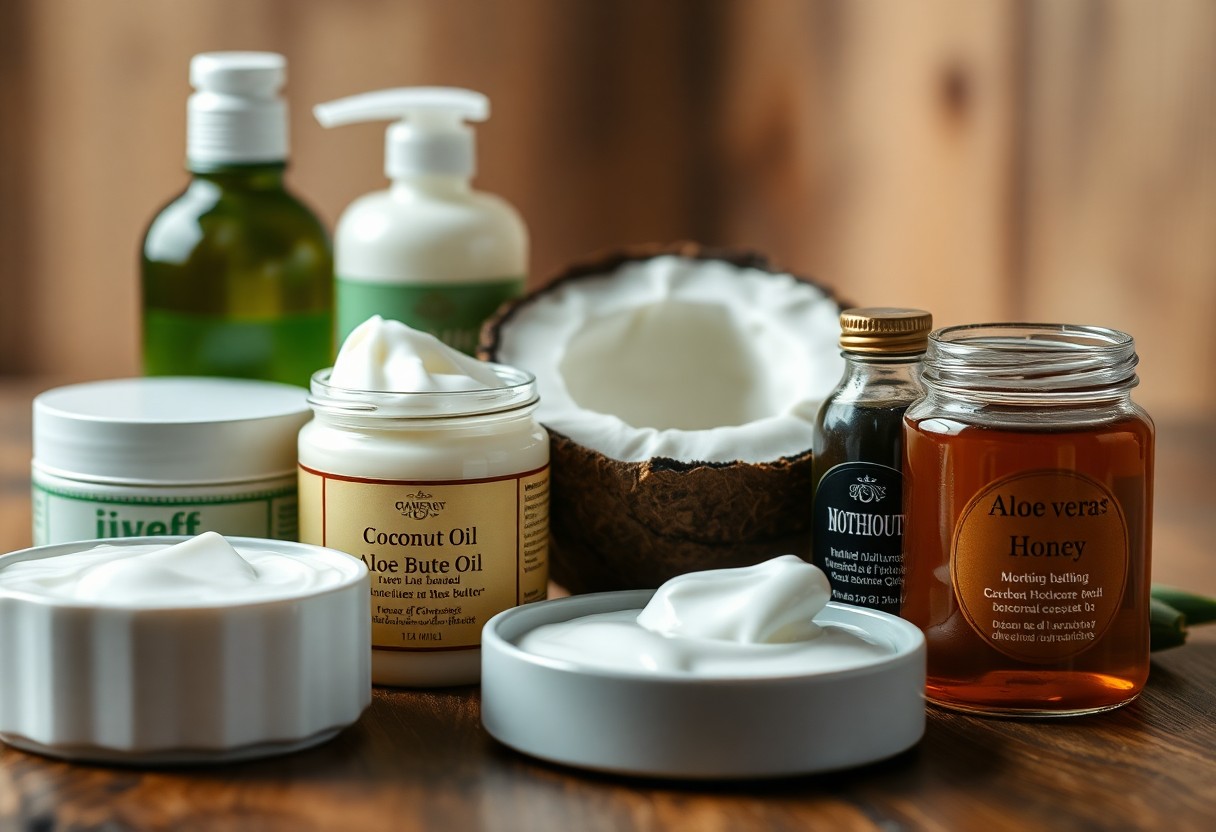
Pros and Cons of Natural Moisturizers
After exploring the various options available, it’s vital to weigh the pros and cons of natural moisturizers. Understanding these can help you make an informed decision for your skin care routine. The following table summarizes the advantages and disadvantages of using natural moisturizers:
| Pros | Cons |
|---|---|
| Made with organic ingredients | Can be less effective for extremely dry skin |
| Free from harmful chemicals | May have a shorter shelf life |
| Gentler on sensitive skin | Possible allergies to certain natural ingredients |
| Environmentally friendly and sustainable | Higher cost compared to synthetic options |
| Customizable formulations | May require patch testing before use |
| Hydrates and nourishes the skin | Varied effectiveness depending on the ingredient |
| Rich in antioxidants | Can feel greasy or heavy for some users |
| Non-comedogenic options available | Limited options for specific skin concerns |
| Supports local and small businesses | Less availability in conventional stores |
| Promotes a holistic approach to skincare | Inconsistent results for different skin types |
For achieving that coveted baby-soft skin, natural moisturizers can offer numerous benefits that you might find appealing. They are typically rich in vitamins and minerals, which nourish your skin while providing hydration. The absence of harsh chemicals means that these products are less likely to disrupt your skin’s barrier, making them suitable for even the most sensitive among us. Additionally, many natural ingredients have anti-inflammatory properties that can help calm various skin irritations. If you’re wondering about specific potent ingredients, you can check out our Top 7 Natural Ingredients for Baby Skin Care for more insights.
Benefits
For many users, the primary appeal of natural moisturizers lies in their ability to deliver hydration without the risk of irritating synthetic compounds. You might find that ingredients like shea butter or coconut oil not only moisturize your skin but also repair and protect it. These moisturizers can keep your skin soft and supple while promoting healing, which is particularly beneficial if your skin is prone to dryness or irritation. Furthermore, natural moisturizers often have a pleasant, earthy scent that enhances the overall experience of using them.
Potential Drawbacks
Pros of natural moisturizers come with certain drawbacks that you should consider. While they are often praised for their gentle formulations, some individuals may encounter allergic reactions or sensitivities to specific natural ingredients. Additionally, not all natural moisturizers provide the same level of moisture, which could make them less effective for those with severely dry skin. It’s also vital to factor in the potential for higher costs and limited sources when seeking these products.
To mitigate the risks, you should always perform a patch test before introducing new natural moisturizers into your routine, especially if you have skin conditions or concerns. It’s important to stay informed and diligent in your choice of products, as some natural ingredients can cause irritations or allergic reactions in certain individuals. By understanding the potential risks and benefits, you can effectively choose the right natural moisturizer to achieve your desired skin results.
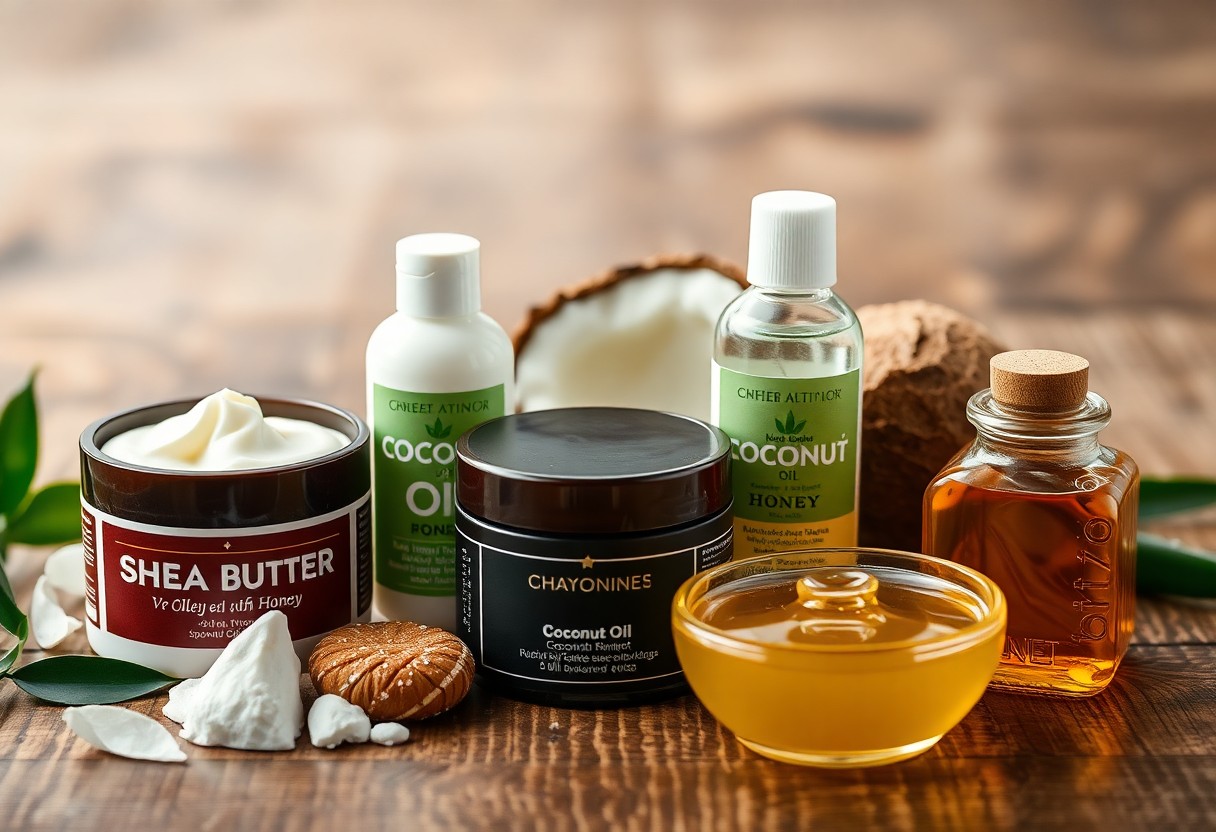
Common Ingredients to Look For
Your skin deserves the finest ingredients to keep it hydrated and healthy. When searching for natural moisturizers, it is beneficial to identify key components that can enhance your skin’s appearance and overall well-being. Two of the most prominent categories to consider are necessary oils and natural extracts. These ingredients offer a variety of nourishing properties that work together to provide your skin with the tender love and care it requires to achieve that coveted baby-soft feel.
Essential Oils
Essential oils, derived from various plants, not only provide delightful fragrances but also bring numerous benefits to your skincare routine. Oils like lavender, tea tree, and chamomile have specific properties aiding in soothing irritation, reducing inflammation, and promoting relaxation. When you incorporate these oils into your moisturizer, you can experience their potent effects, ensuring that your skin feels rejuvenated and revitalized.
Natural Extracts
You should always seek out natural extracts when choosing a moisturizer, as they significantly enhance the product’s effectiveness. Ingredients such as aloe vera, green tea, and cucumber extract are known for their powerhouse qualities. These extracts are abundant in antioxidants, vitamins, and anti-inflammatory properties that help nourish, protect, and hydrate your skin.
Understanding the importance of natural extracts not only shows a commitment to healthier skin but also highlights their remarkable ability to transform your skincare regimen. Aloe vera, for instance, is excellent at deeply hydrating your skin without leaving a greasy residue, while green tea offers powerful antioxidant effects to combat free radicals. By recognizing these benefits, you empower yourself to make better choices for your skin, ultimately leading to a radiant and soft appearance.
To wrap up
Conclusively, as you seek to achieve the coveted baby-soft skin, incorporating top natural moisturizers into your skincare routine can greatly enhance your results. Options like shea butter, coconut oil, and almond oil not only deeply hydrate but also nourish your skin with important vitamins and minerals. By choosing products that align with your skin type, you can transform the way your skin feels and looks, providing it with the care and attention it deserves.
Moreover, utilizing these natural moisturizers not only benefits your skin but also ensures you are using products free from harsh chemicals. This approach fosters a healthier skin barrier, allowing your skin to retain moisture and maintain its softness over time. By integrating these natural solutions into your daily regimen, you can confidently put your best face forward, embracing the softness you desire. Invest in your skin and enjoy the lasting benefits of nature’s finest ingredients.
FAQ:
Q: What are some of the best natural moisturizers for achieving baby-soft skin?
A: Some of the top natural moisturizers include coconut oil, shea butter, almond oil, jojoba oil, and avocado oil. Each of these ingredients offers hydration and imperative nutrients while being gentle on the skin. Coconut oil is renowned for its antibacterial properties, while shea butter is rich in vitamins A and E, making it perfect for deep nourishment.
Q: How often should I apply natural moisturizers for the best results?
A: It’s ideal to apply natural moisturizers at least twice a day, once in the morning and once before bed. For optimal absorption, apply the moisturizer to slightly damp skin right after cleansing. This helps to lock in moisture, giving your skin a more radiant and soft appearance.
Q: Can natural moisturizers replace regular moisturizers, and are they suitable for all skin types?
A: Yes, natural moisturizers can effectively replace conventional products and are often suitable for all skin types. However, it’s important to select the right one based on your particular skin type. For example, lighter oils like jojoba are excellent for oily skin, while richer options such as shea butter work well for dry skin. Always conduct a patch test to ensure compatibility.
Q: Are there any DIY recipes for creating natural moisturizers at home?
A: Absolutely! One simple recipe includes combining equal parts of coconut oil and shea butter, melting them together, and then adding a few drops of imperative oils like lavender or tea tree for added benefits. Another option is blending olive oil with honey to create a hydrating mask that you can apply to the skin for 15-20 minutes before rinsing off.
Q: How do I know if a natural moisturizer is effective for my skin?
A: To gauge the effectiveness of a natural moisturizer, observe how your skin reacts after several uses. Signs of effectiveness include increased softness, hydration, and a reduction in dryness or irritation. If the product causes any adverse reactions, such as redness or itching, discontinue use. Keeping track of your skin’s condition will help you determine if a moisturizer meets your needs.

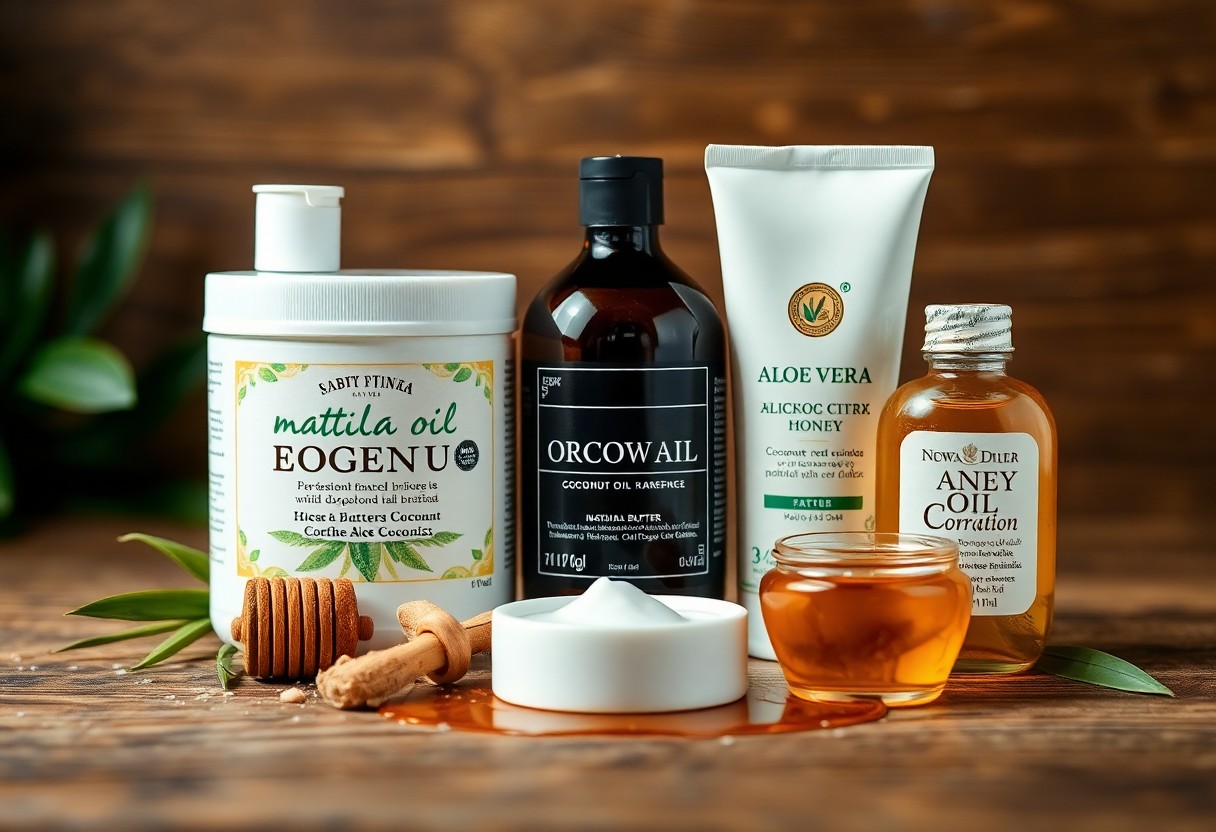











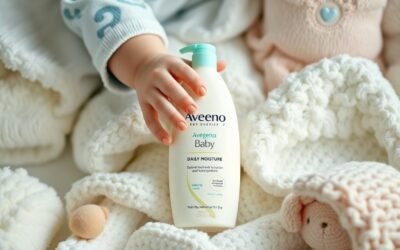

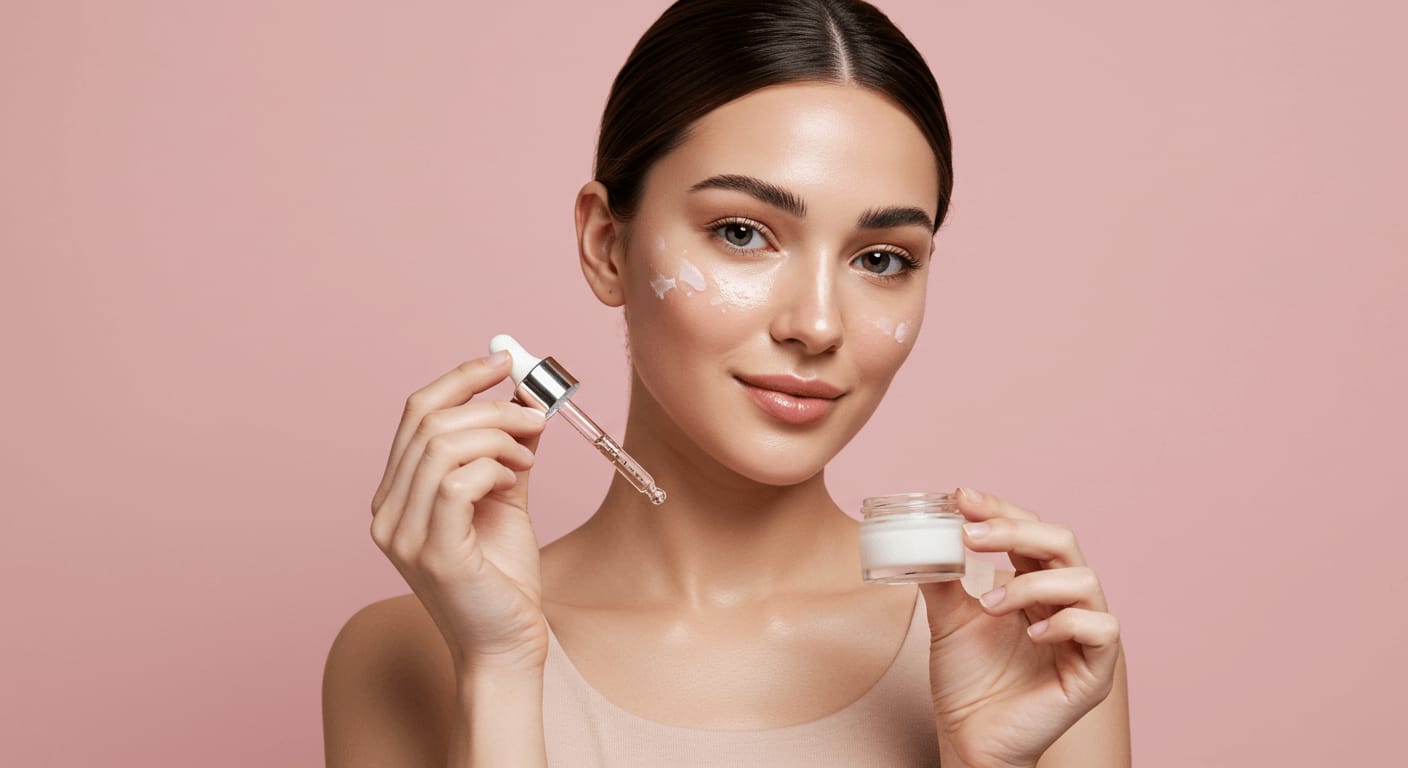



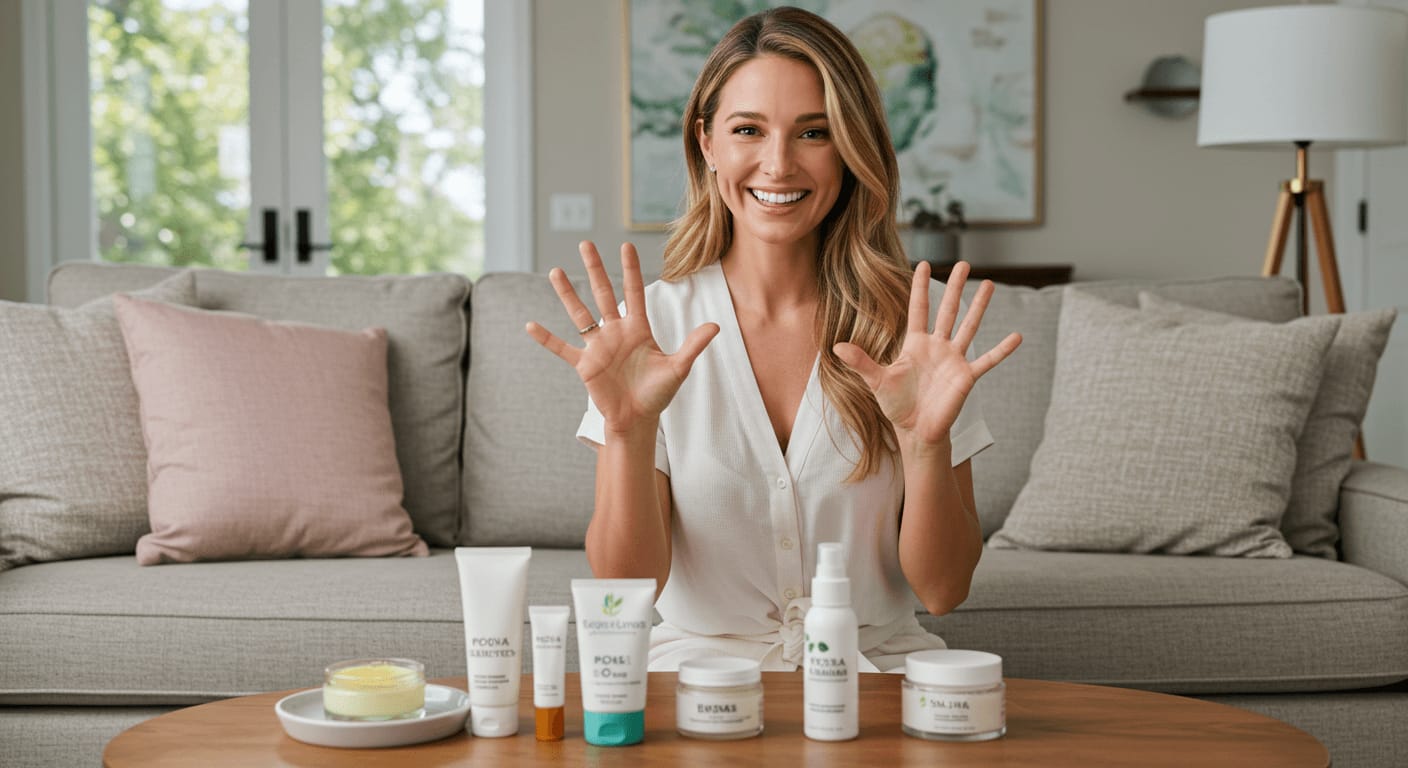



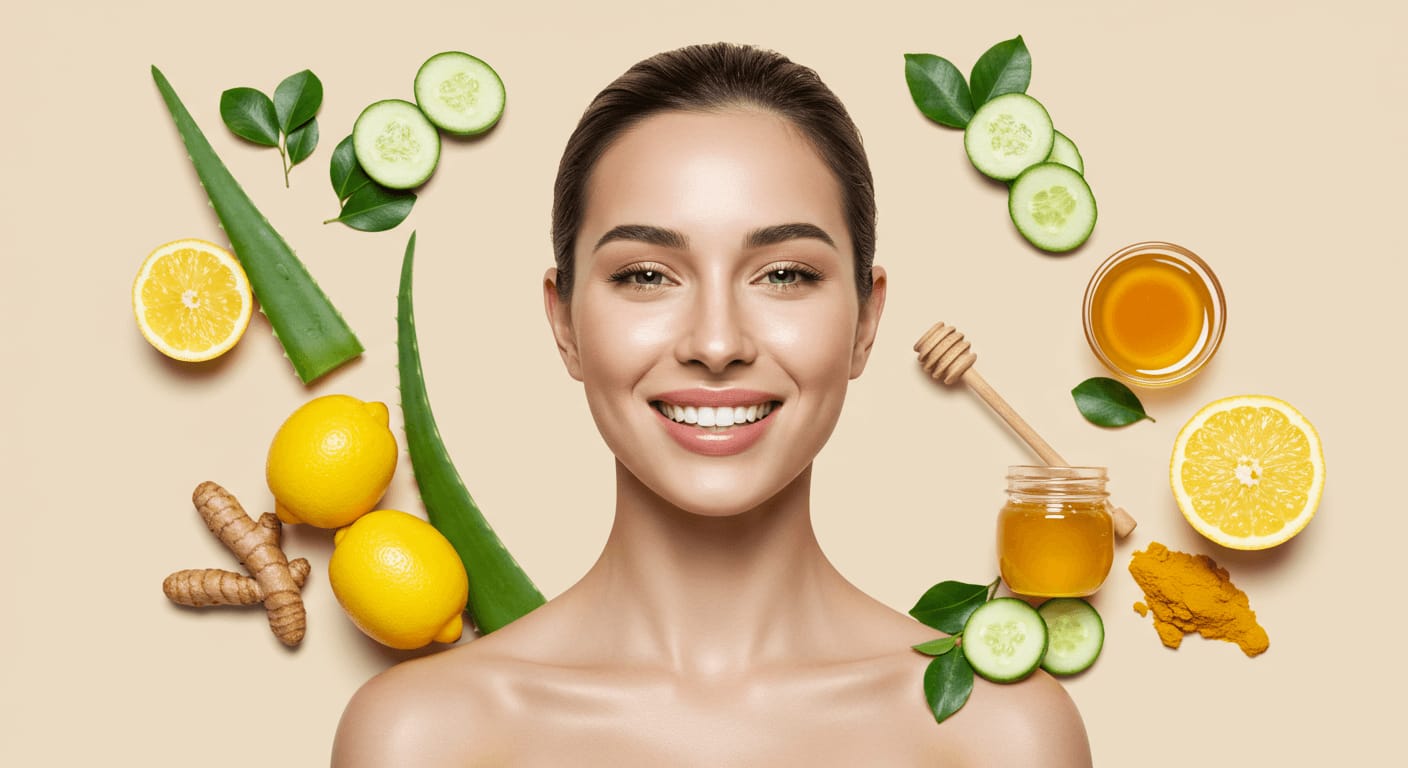

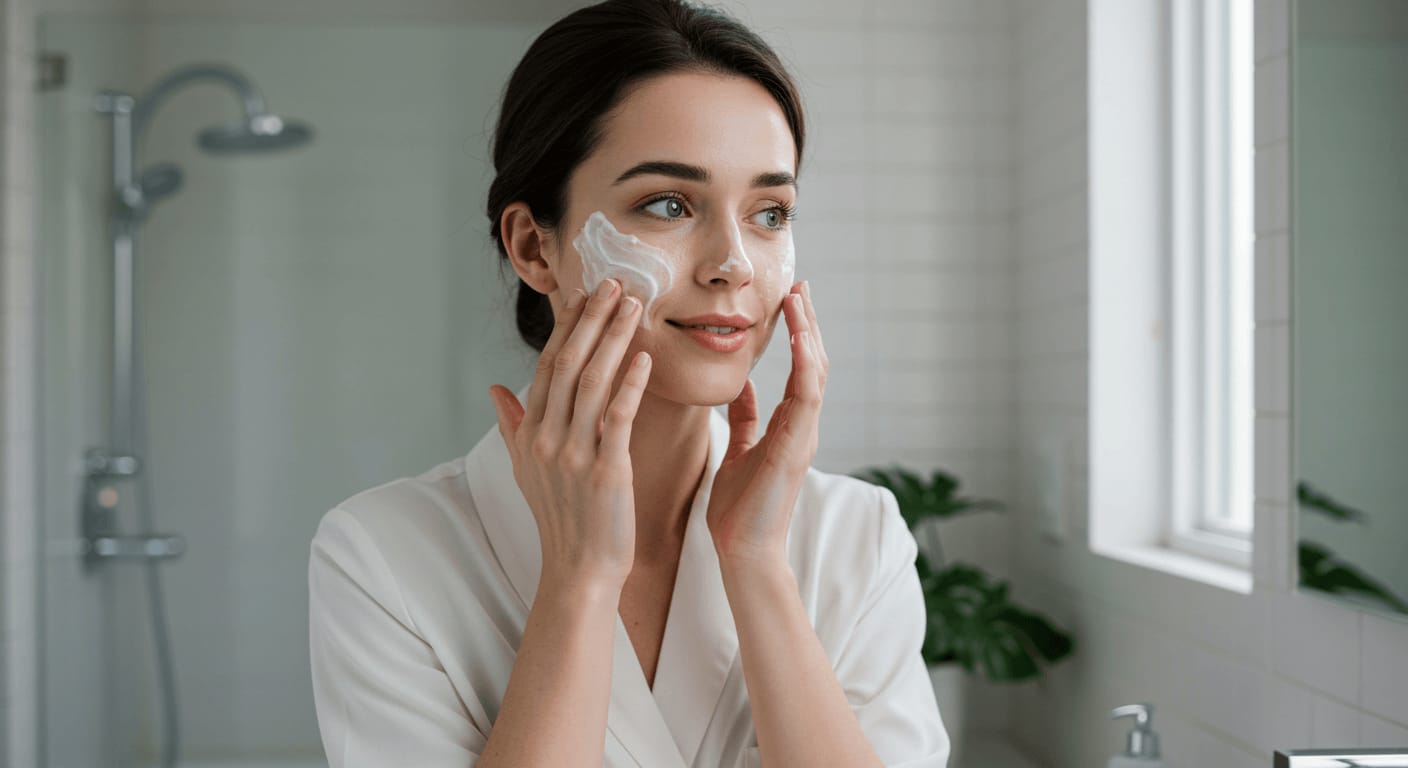








0 Comments